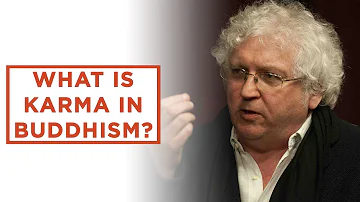What is the difference between karma in Buddhism and Hinduism?
Innehållsförteckning
- What is the difference between karma in Buddhism and Hinduism?
- What is difference between Buddhism and Hinduism?
- What is karma according to Buddhism?
- How do Theravada and Mahayana Buddhism differ?
- What is the difference between Theravada and Mahayana expressions of Buddhism?
- What are the 2 major differences between Buddhism and Hinduism?
- Why did Mahayana Buddhism have mass appeal in some places?
- What is Dharma and karma in Hinduism?
- What is the law of karma in Buddhism?
- What is the difference between good karma and bad karma?
- What is the difference between Sanchit karma and prãrabdha Karma?

What is the difference between karma in Buddhism and Hinduism?
Similarly, in the Hindu context karma refers to ritual action—darshan and puja—whereas for the Buddhists karma has always been an ethical action. For Buddhists, karma (action)—whether good or bad —lay in the intention. Buddha deemphasized Brahmanical rituals by making karma an ethical act and focusing on intention.
What is difference between Buddhism and Hinduism?
A major difference between Hinduism and Buddhism is the belief, or lack of belief, in a soul. Hinduism believes in the concept of a soul. ... In Buddhism, on the other hand, there is no belief in the concept of soul. On the contrary, the Buddha rejected the concept of soul or atman.
What is karma according to Buddhism?
In the Buddhist tradition, karma refers to action driven by intention (cetanā) which leads to future consequences. Those intentions are considered to be the determining factor in the kind of rebirth in samsara, the cycle of rebirth.
How do Theravada and Mahayana Buddhism differ?
Mahayana Buddhism Mahayana Buddhists believe they can achieve enlightenment through following the teachings of the Buddha . ... Whereas Theravada Buddhists strive to become Arhats and gain freedom from the cycle of samsara, Mahayana Buddhists may choose to stay in the cycle of samsara out of compassion for others.
What is the difference between Theravada and Mahayana expressions of Buddhism?
What is the difference between the Theravada and Mahayana expressions of Buddhism? Theravada states that one's enlightenment should be achieved through self-effort, had no distinct gods, and fought for equality. Mahayana had people to help one achieve nirvana, had gods, and religious merit.
What are the 2 major differences between Buddhism and Hinduism?
Buddhism and Hinduism agree on karma, dharma, moksha and reincarnation. They are different in that Buddhism rejects the priests of Hinduism, the formal rituals, and the caste system. Buddha urged people to seek enlightenment through meditation.
Why did Mahayana Buddhism have mass appeal in some places?
Why did Mahayana Buddhism have mass appeal in some places? It was easier for ordinary people to follow. Which of the following beliefs is central to all Buddhist sects? Nirvana is the desired state of being.
What is Dharma and karma in Hinduism?
- Karma and Dharma. Karma is the universal Hindu law of cause and effect which holds a person responsible for his or her actions and effects. According to one’s good or bad actions, Bhagwan rewards or punishes. The word ‘karma’ means human action or deed; we are constantly performing karmas whether physically, mentally, or emotionally.
What is the law of karma in Buddhism?
- “As you sow, so shall you reap” is a common phrase in life which concisely sums up the law of karma. Karma is the universal Hindu law of cause and effect which holds a person responsible for his or her actions and effects. According to one’s good or bad actions, Bhagwan rewards or punishes.
What is the difference between good karma and bad karma?
- People tend to fail to distinguish between good karma and bad karma. Below are examples of good karma and bad karma: Good karma is simply good thoughts and actions that result in positive aspects in ones’ life. Below are examples of good karma; Doing community work to help build the society. Abiding by rules and regulation governing the society.
What is the difference between Sanchit karma and prãrabdha Karma?
- Sanchit karma is an accumulation of karmas containing the sum total of all a person’s karmas from one or many past lives. The fruits of these karmas are being experienced or have yet to be experienced. Prãrabdha karma is a part of one’s sanchit karma that is being experienced in this birth.















